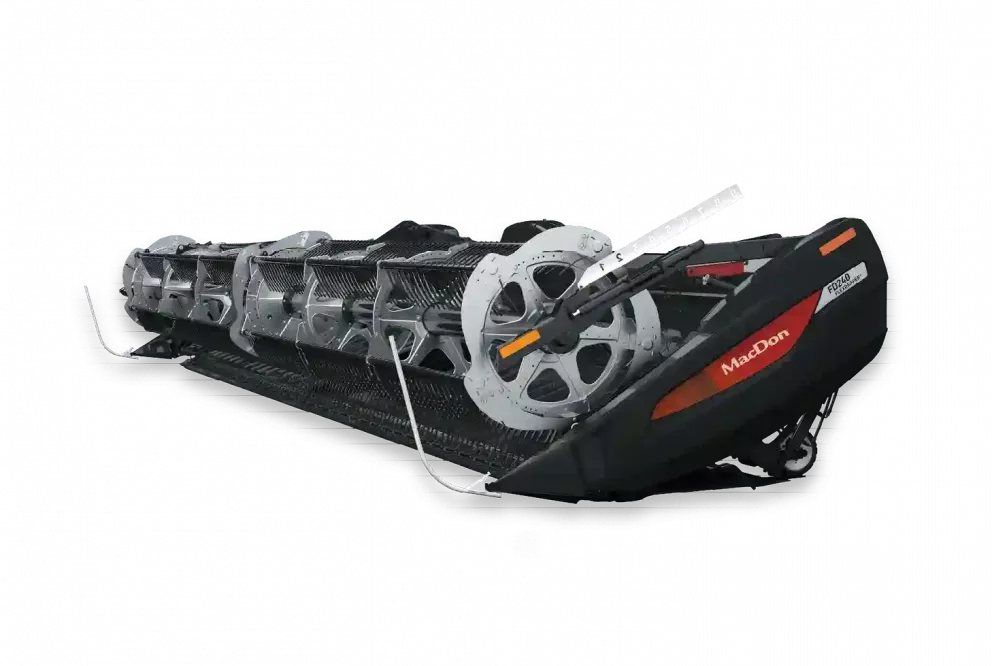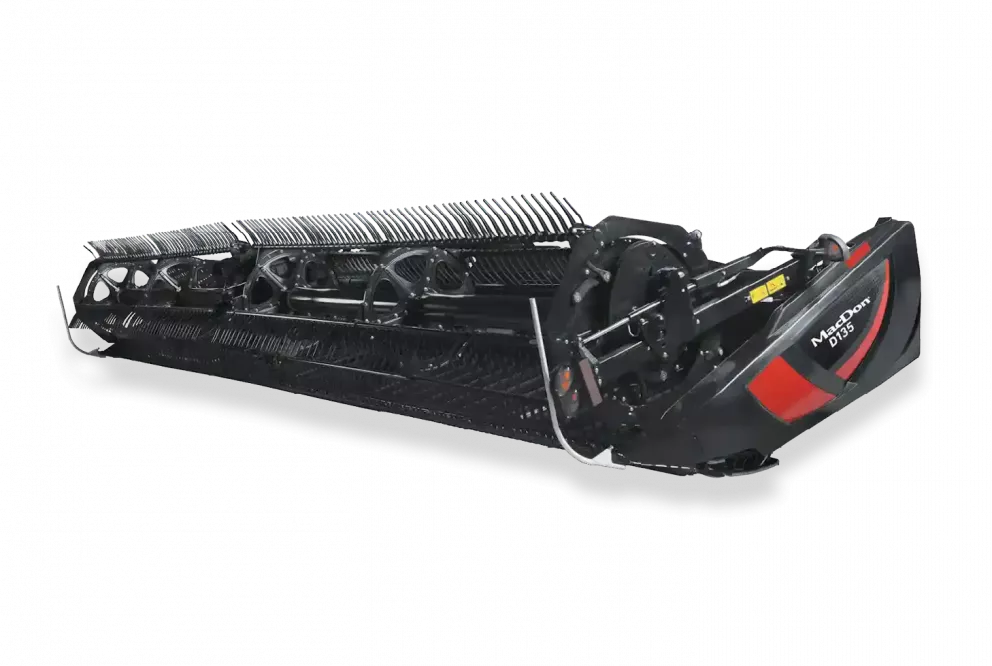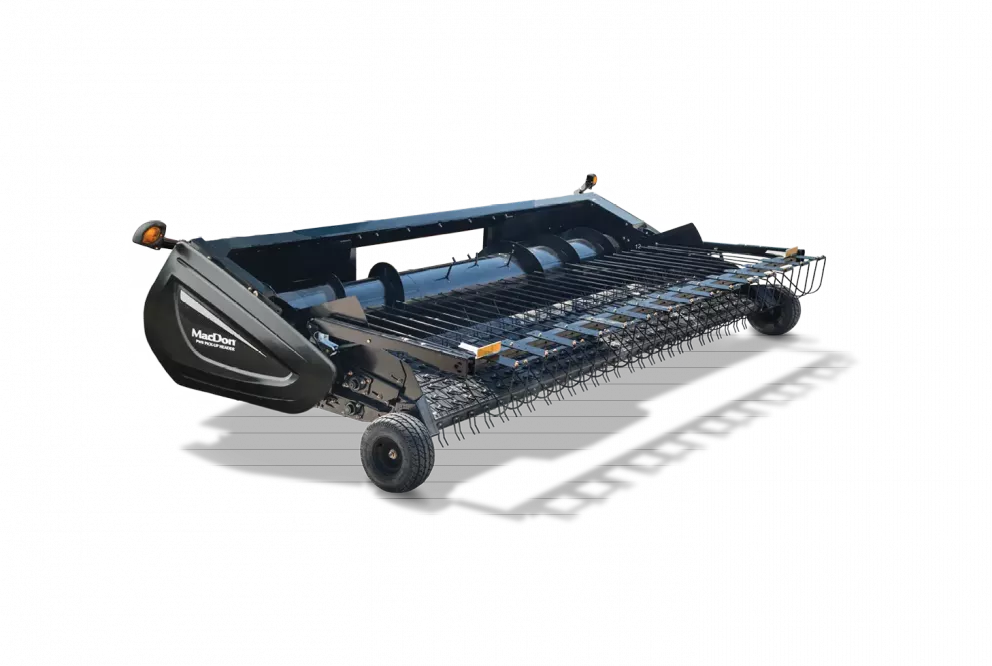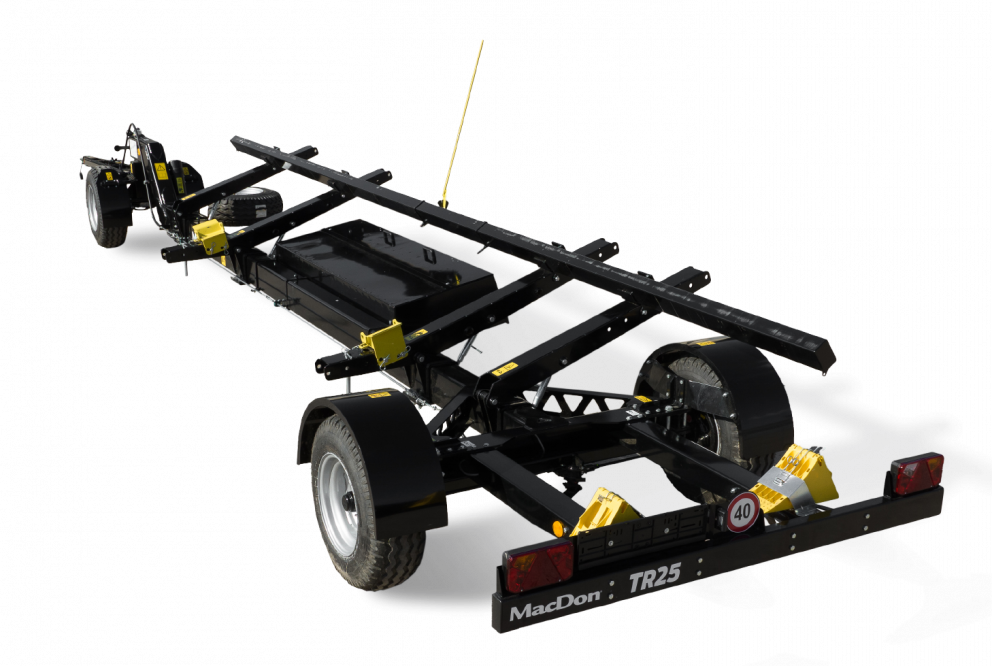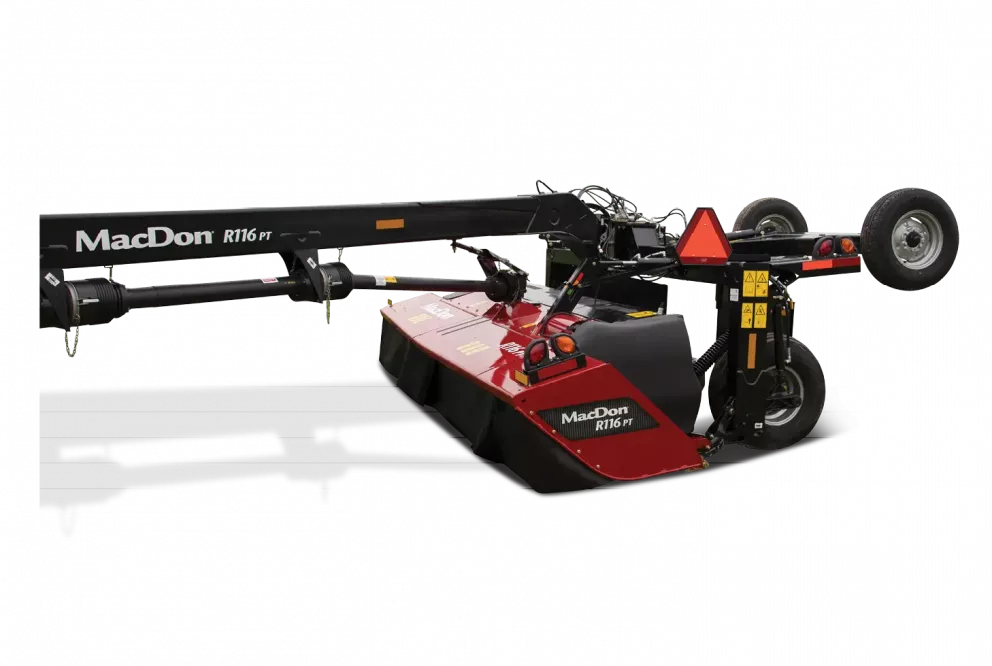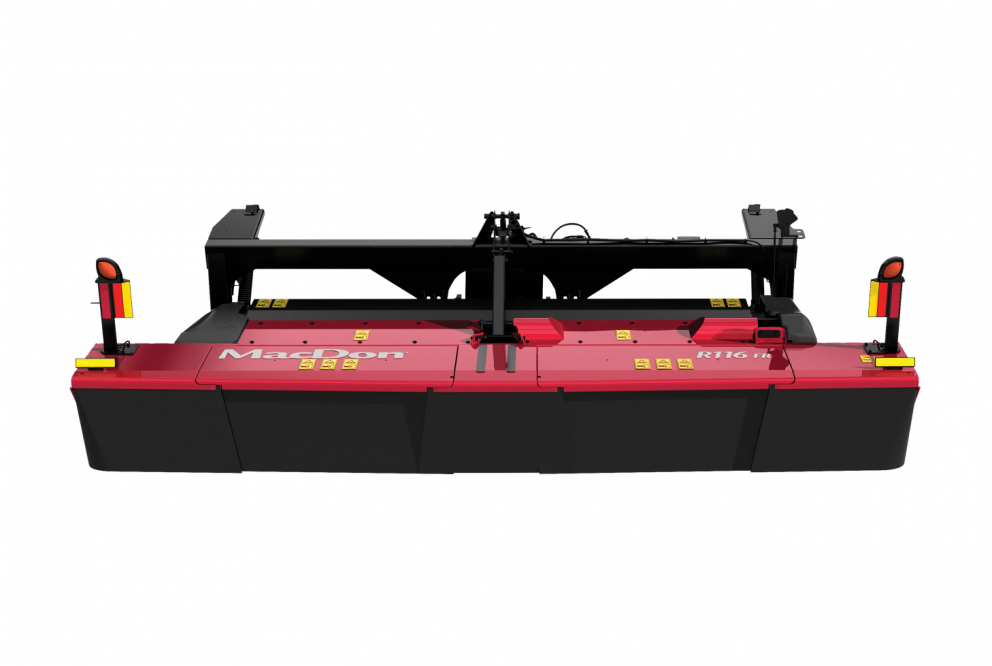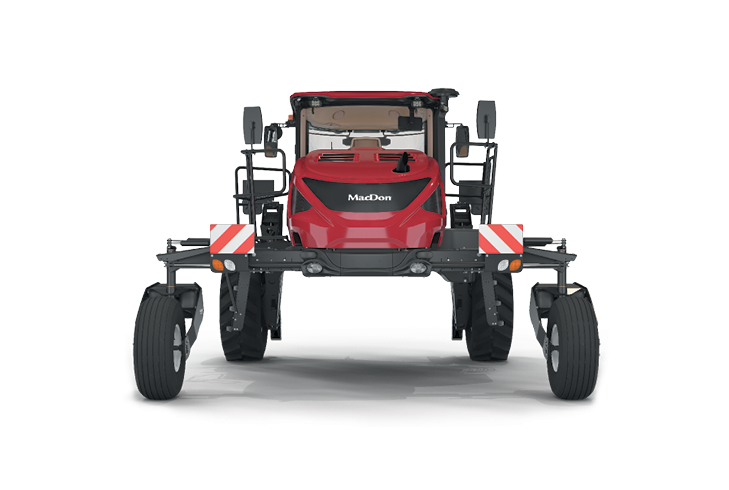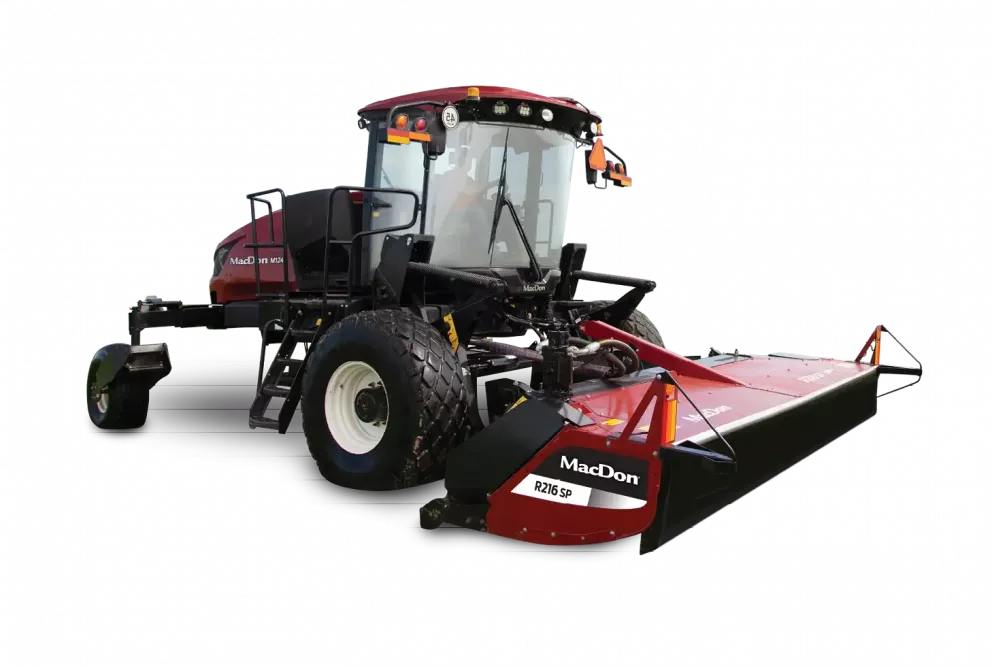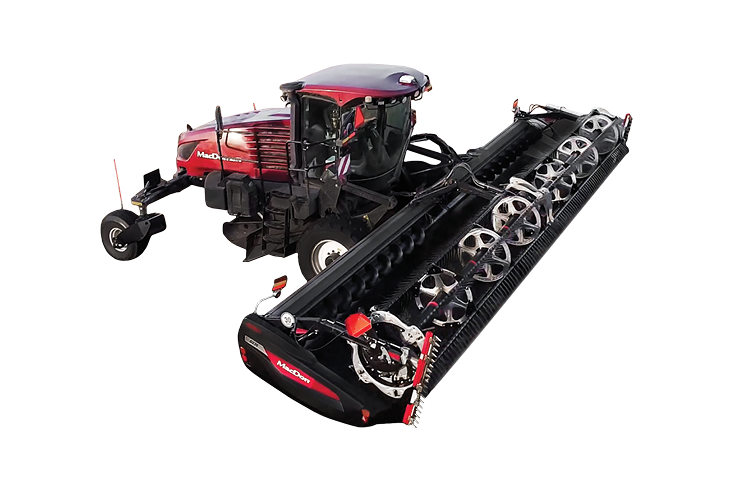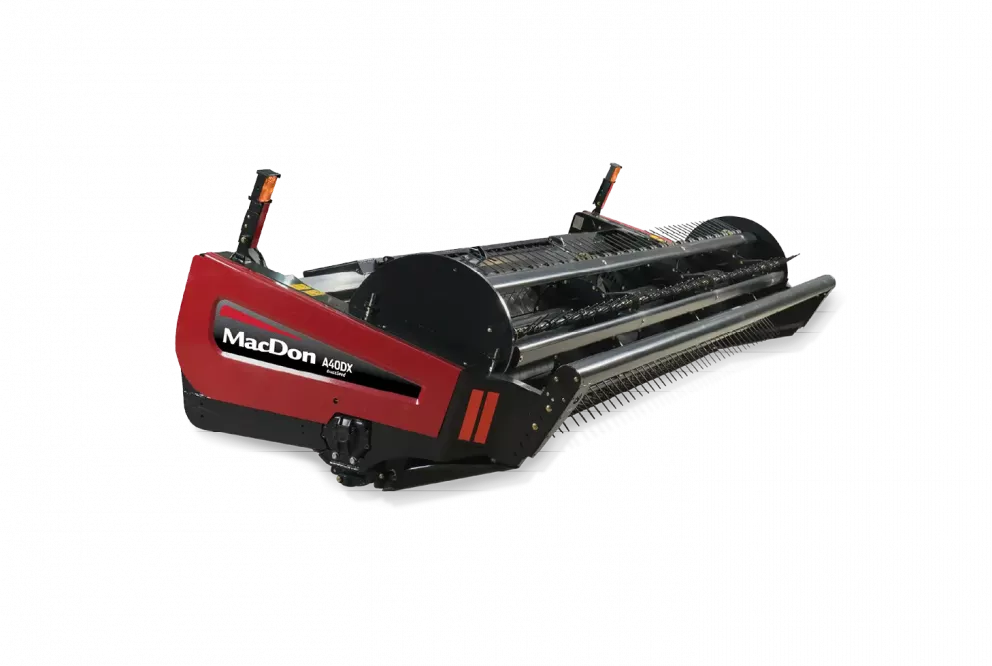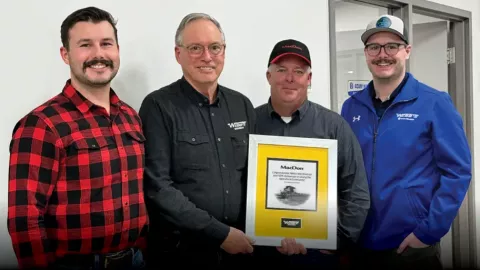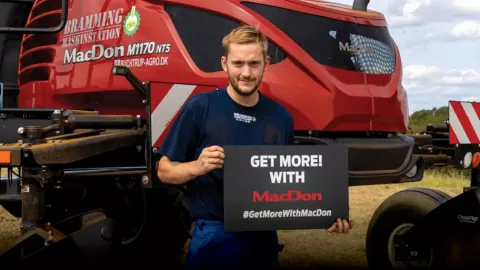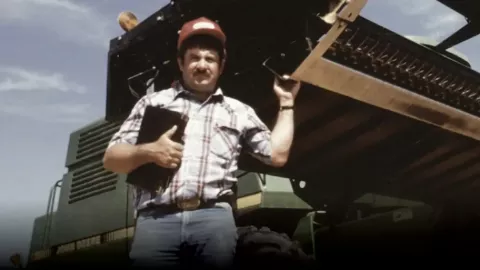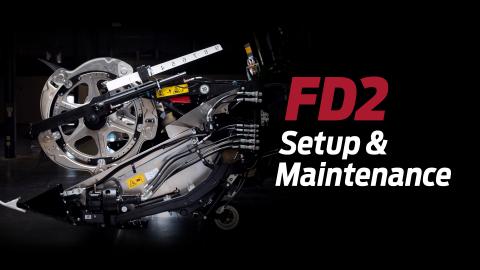Home Is Where The Harvest Is
Katey Freeman's journey brought her back to where she always wanted to be, and their MacDon equipment is helping her and her father, Steve, get things done on the family farm her grandfather started.
You can hear it in the joy she radiates when talking about raising cattle or the challenges of harvesting corn; Katey Freeman is right where she wants to be, likely where she has always wanted to be in her heart.
The 20-something Kansas native is back home working the family farm near Columbus, Kansas, after studying agribusiness at Northeastern Oklahoma A&M College, followed by a Bachelor's Degree in Agricultural Leadership from Oklahoma State.
"I've always loved the farm," said Freeman, taking time from working their land to speak to MacDon Performance. "There's also just so much that goes into farming that appeals to me: hard work, determination, grit and having faith that everything's going to be okay no matter how bad things get."
After graduating in the spring of 2020, during the onset of COVID, Freeman took a bookkeeping job with a local fertilizer company but quickly realized that it was not the side of agriculture she was passionate about.
"To be honest, I wasn't really sure what I wanted to do with my education, but I knew that bookkeeping wasn't for me, so I quit that job to focus on my small business of making shirts, hats and, decals and stuff. I even went to work for a local sale barn on sale days just because I really love cattle."
But then life intervened in the summer of 2022 to bring her back to the farm when her grandfather suffered a stroke while checking on the cattle, eventually passing from his illness in March of this year after a long battle to recover. While Freeman says she desperately wanted her grandfather to be able to return to farming, she also knew deep down that wasn't going to happen. She also knew where she really wanted to be, back on the farm helping her dad.
"Yeah, it was tough. That was when I realized that even though one's prayer might not be answered exactly as you want, things turn out exactly how they need to be. Ever since then, it's been just me and my dad."
The farm that Katey now operates with her father, Steve, was first started by her grandfather in the 50's. It is a mixed operation with about 2,200 acres of corn, soft wheat, soybeans and, occasionally, milo or sorghum. They also raise between 250 to 300 cattle, including Freeman's small herd that she has managed since she was a teenager and used to help pay for her college education.
"I do a little bit of everything around here. Right now, I'm working ground so we can plant winter wheat on our corn ground. I am also kind of the primary vet for our cattle; I help work them and haul them and things like that. I fill in where my dad needs me, and I've had to learn a lot of new things. When everything happened to my grandpa last year, I kind of got thrown into everything head-first. It was sink or swim, so I decided I better swim."
One of the duties that has fallen to Freeman is combining. For someone who describes herself as a "nerd" who grew up in the combine with her dad, it is a job she has discovered that she has both an aptitude and passion for.
"I took that over from my dad a couple of years ago, and he's never managed to claim it back. I'm very mechanically minded, so I just love all the moving parts of the combine. I'm also very much a hands-on worker who loves a good challenge. In that way, I'm just like my dad and grandpa."
Freeman says that she finds running the combine a deeply satisfying job.
"It's so cool to see the whole plant being cut in front of you and then to turn around and see the grain in the tank; after all, it's the grain that you take out of the field that's the whole point of the work we do."
For wheat and soybean harvesting, the Freemans run two Case IH combines mounted with 30' FD1 FlexDrapers, but for corn, they run just one combine equipped with MacDon's 12-row C Series Corn Header.
"We run only one combine during corn harvest because we only plant about 800 or 900 acres of it, so running two combines is never justified. And typically, with corn, you're busier hauling to the co-op, so you need one operator to do that."
The Freemans have been very pleased with their C Series corn head, both for its harvesting performance as well as its residue management, an important consideration when they are preparing their land to plant their winter wheat. Here, the ability of the header to aggressively crimp and chop corn stocks down into 2" to 3" pieces is especially helpful as it results in more evenly distributed residue and faster microbial action.
"Right now, I'm working our corner ground after our corn harvest, so I'm seeing firsthand how the stocks are. The header does a great job cutting and chopping the stocks down, and I'm really impressed how quickly our chaff starts to dry out and break down."
As the one who gets to run the combine during corn harvest, Freeman says that she also appreciates how easy it is to control the header's flotation and cutting action from the cab.
"The sensors on the bottom of the header make it so nice to operate because you can run it as close to the ground as you need to. It does a great job helping you adjust both header height and crop flow so you're not running into the ground or bringing too much extra in."
She even thinks that the header may be helping them recover more crop.
"Everyone experiences crop loss, but compared to some other fields around us that use different corn headers, we noticed that we didn't have near the loss this year as some people did."
"Overall, we feel it does a really great job for us. It feeds great, so we don't have clogging, and we didn't have breakdowns this year, which is impressive. I would definitely recommend it just for its engineering and the quality of the job it does. It's obviously a great quality product."
Freeman said their fall harvest still needed to be completed as they still had to get into the field with their FD1 FlexDrapers to cut their soybeans.
"I know some people have started cutting beans around here, but we're not because ours are still very, very green."
She reports that this year's soybeans look much better than last year's crop, which were extremely low in yield thanks to drought conditions that transformed parts of Kansas into a temporary desert.
"I think from the time we planted the beans until harvest, we got two inches of rain, so we were almost harvesting nothing. The soybeans were very short, and you were running pretty much on the ground to pick up anything. While some people around here were running things up in their headers and picking up lots of dirt, we had very few issues with those types of things because these FlexDrapers float so well over the ground. One of our neighbors actually called my dad to ask him about our FD1s, what he thought about them and where he got them."
But it is not just under conditions like last year's extreme drought that Freeman says that she appreciates the performance of their FD1s.
"We have lots of terraces in this part of Kansas, and these headers just float and follow the ground so well that they are never a problem. You can always run them low to the ground, and you're not having to adjust your height constantly."
"We also like how well they feed. Normal headers can get clogged very easily, particularly this time of year with soybeans, because they can get so damp at night. But as long as I'm not running too fast, these headers always do a good job feeding, and we have a lot less loss. That's what I really like about 'em."
Freeman's approval of their FlexDrapers is not just from an operator's perspective; she also does so as someone who has earned a degree in ag business with an emphasis in ag economics.
"I think they're a good investment. I know you might be putting a little more money upfront, but in the long run, you're losing less grain when you're harvesting and that adds up. You're also experiencing fewer breakdown issues, so you're also putting less into maintaining them. Over the long run, you're saving lots of money."
And the long run is important to Freeman because she wants to stay involved in the family farm as long as possible.
"I hope to continue to farm with my dad so that someday when he is ready to retire, I can take care of it. My fiance comes from farming, too, so together, we can keep it going for the family.
